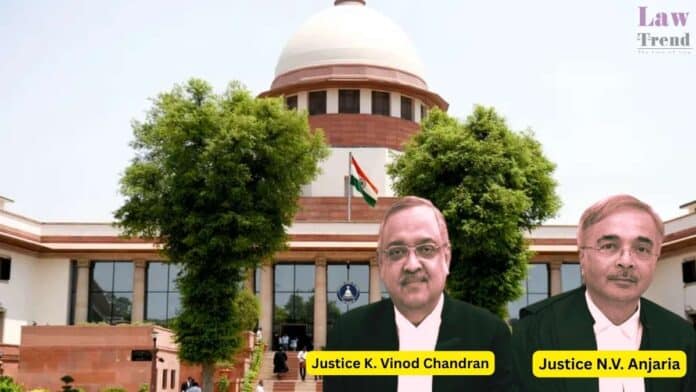The Supreme Court of India, in a significant ruling on motor accident claims, has set aside a High Court order that allowed an insurance company to recover compensation from a vehicle owner after the driver’s license was found to be fake. The division bench of Justice K. Vinod Chandran and Justice N. V. Anjaria held

To Read More Please Subscribe to VIP Membership for Unlimited Access to All the Articles, Download Available Copies of Judgments/Order, Acess to Central/State Bare Acts, Advertisement Free Content, Access to More than 4000 Legal Drafts( Readymade Editable Formats of Suits, Petitions, Writs, Legal Notices, Divorce Petitions, 138 Notices, Bail Applications etc.) in Hindi and English.
Click to Subscribe
If you are already a VIP Member, Click to Login Now
READ ALSO Shouting and Threatening Do Not Constitute Assault Under Section 353 of IPC: Supreme Court




